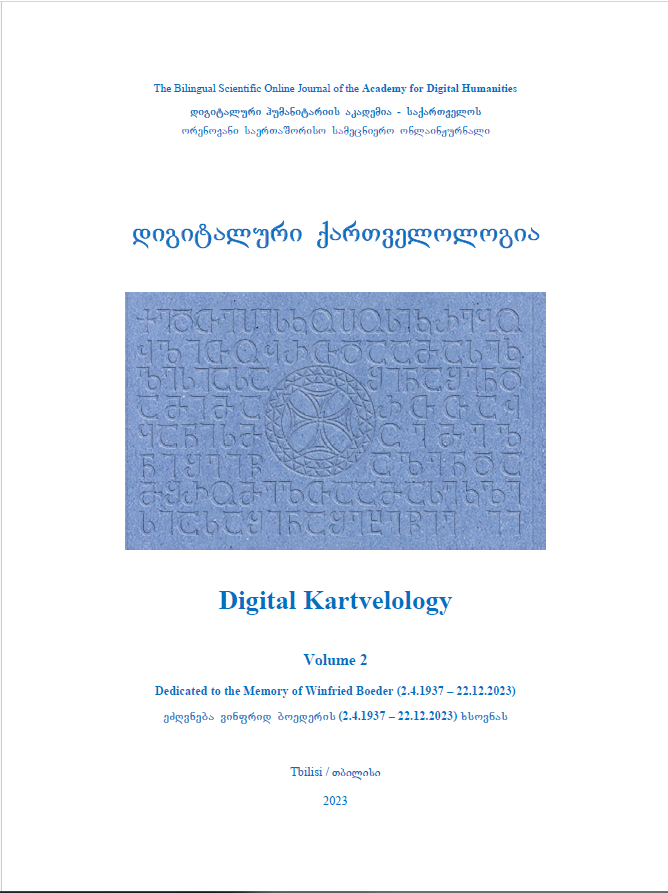ბათუმის ლინგვოკულტუროლოგიური დიგიტალური არქივი: დოკუმენტირების ახალი პერსპექტივები
Main Article Content
ანოტაცია
The paper introduces the “Batumi Linguocultural Digital Archive”, an initiative that was implemented through financial support by the Shota Rustaveli National Science Foundation during the period of 2016 to 2019. The project was specifically designed to document the linguistic and cultural heritage of the Adjara region, Georgia. The archival holdings encompass an array of digital resources, including audio and video materials, totalling 100 hours of content formatted in MP3 and AVI.
Among these holdings, a subset of 30 hours consists of audio and video materials that have undergone transcription. Additionally, 10 hours of video materials have received compre-hensive multimedia annotation, featuring transcriptions, glosses, and interlinearisation in the form of EAF-type resources. Furthermore, the archive includes 5 hours of video content with multimedia annotations that comprise English translations, also structured as EAF-type resources.
The development of the Linguistic and Cultural Digital Archive marked a pivotal moment in advancing digital documentation and archiving practices in Georgia. The initiative not only introduced innovative research methodologies but also leveraged digital resources, thereby significantly enhancing the efficiency of endeavours focussing on the research in the Humanities in Georgia. The primary achievement of the “Batumi Linguocultural Digital Archive” project lies in the creation of a modern, standardised framework for the documentation and archiving of cultural and linguistic materials in Georgia, a milestone that is poised to foster the development of interdisciplinary studies within the country.
Furthermore, it is worth highlighting that the resources acquired and catalogued under the project’s auspices have transcended national boundaries, serving as valuable assets with international applicability. The materials have been translated into English, rendering them accessible to a broader, non-Georgian speaking audience. This effort toward inter-nationalisation underscores the project’s commitment to facilitating cross-cultural exchange and knowledge dissemination.




